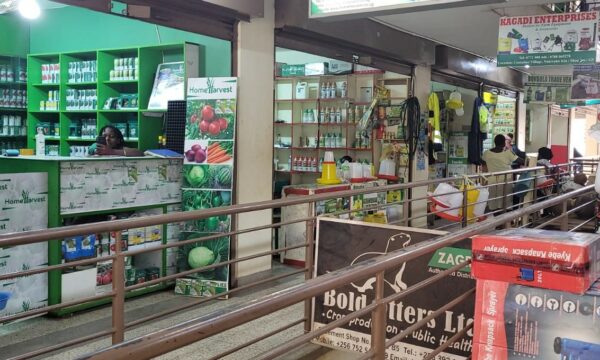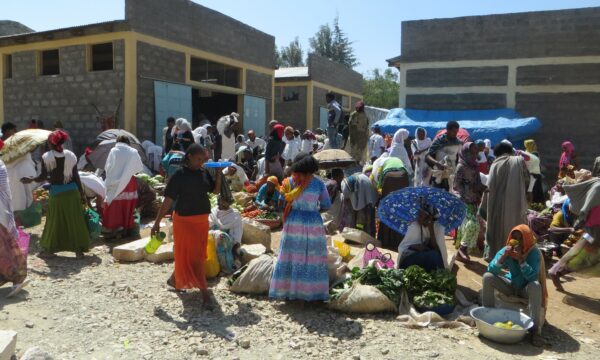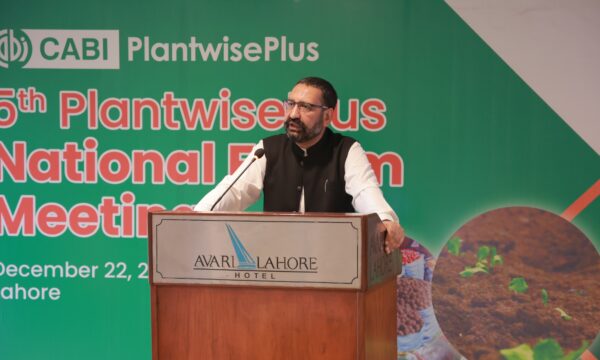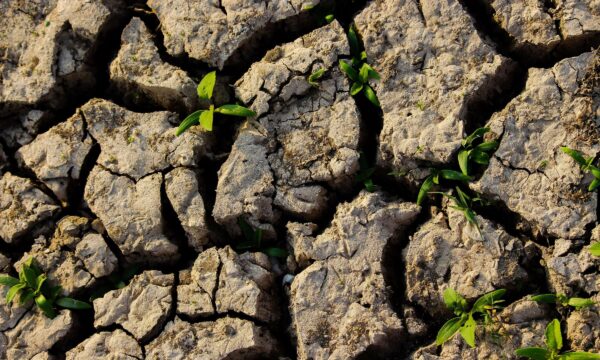
A photograph of a cabbage leaf showing symptoms of black rot. Image by USDA Forest Service via Wikimedia Commons (CC-BY 3.0)
Vegetable farmers in the Kayunga and Mukono districts of Uganda are reporting crop losses due to black rot disease. One farmer, Twaha Kahooza of Kyampisi village, Kayunga Sub-county, says he had planted four acres of cabbages and was expecting about Shs18m (about £4,500 or US$7,000) from the harvest, however he only managed to get Shs5m (about £1,200 or US$2,000).
Black rot is caused by the bacterium Xanthomonas campestris pv. campestris and is one of the most destructive diseases of cabbage and other crucifers such as broccoli, brussels sprouts, Chinese cabbage, collards, kohlrabi and mustard. The disease is usually most prevalent in low lying areas where plants remain wet for long periods. The disease is characterized by a yellow V-shaped lesion at the leaf margin which turns brown as the leaf area expands. The disease can also affect seedlings and can enter the plant through insect feeding or injury to the plant. Management of black rot in crucifers includes obtaining certified, pathogen free seed, ensuring there is enough space between plants and crop rotation.To read more about black rot and black rot management visit factsheets on the Plantwise Knowledge Bank.
To read a Plantwise Factsheet for Farmers written in Uganda click here.
To find out more about Plantwise plant clinics running in Uganda, click here
References:
‘Farmers count losses over black rot disease in cabbage’, Fred Muzaale, April 2013, Daily Monitor
Related News & Blogs
Plant clinics showcased at Harvest Money Expo in Uganda to help empower the country’s young smallholder farmers
The CABI-led PlantwisePlus programme showcased its plant clinics at the Harvest Money Expo in Uganda to help empower the country’s young smallholder farmers to grow more and lose less to potentially devastating crop pests and diseases. The Harvest Mone…
22 March 2024




